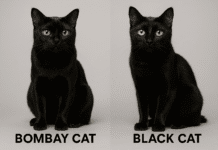Last Updated on January 15, 2026 by Rida Gul
Table of Contents
What does it mean to be behaviorally competent?
Aspiring to succeed in a position requires a person to have certain psychological and behavioral traits, which can help define how successful they will be. In addition, it is used to identify the qualities of employees that will help them succeed in the job in the future. Top performers have a variety of behavioral competencies, such as the following: knowledge, skills, attitudes, actions, and characteristics.
Behavioral Competency refers to any behavioral trait, such as skill set, knowledge, technical know-how, leadership qualities, etc., which contributes to an individual’s progression in the organization to assume progressively larger positions.
You’re covered at every level at the top, middle, or bottom. Behavioral Assessment isn’t as straightforward at a vital stage in the hiring process. A prospective employee is always on the lookout for someone capable of doing the job.
Personality and behavioral qualities can predict how successful an individual will be in the career they are pursuing, and behavioral Competency refers to these traits. It is used to identify the qualities of employees that will help them succeed in the job in the future.
Kinds Behavioral Competencies
Behavioral Competency can be classified into four categories:
All of an individual’s traits and qualities relating to their environment are included in the concept of a person’s personality attributes. Accountability, self-confidence, self-awareness, and passion are just a few examples of traits that define a person’s personality. Therefore, they play a critical role in establishing whether or not a new hire will fit in well with its culture.
Interpersonal skills are how one interacts with others while maintaining a focused goal. It has to do with a worker’s capacity to get along with coworkers and operate well in a group to accomplish their assigned tasks.
Effective communication, active listening, teamwork, conflict management, etc., are all examples of interpersonal skills. For many positions in a company, strong interpersonal skills are required.
Understanding patterns, trends, and inconsistencies in the data you are presented with is a critical component of analytical skills. As long as a person has the ability, they can use methodological approaches or creative thinking to develop solutions.
Analytical aptitude includes problem-solving, critical thinking, and logical reasoning. Using these assets, a business can better address its concerns and achieve greater productivity and profitability.
Those who can examine a problem and come up with an efficient solution are sought after by employers. Professionally and socially, leadership qualities can be applied in various contexts.
Good leaders keep their team organized, take measured risks, motivate their colleagues, and encourage them to perform at their highest ability level. The continuous growth of an organization can be attributed to a strong leader.
Do you know about Behavioral traits?
The specific skills required for a profession might be called the “core behavioral competencies.” Regardless of the nature of the work, these competencies encompass the character qualities, motivations, and talents necessary to execute at a high level.
It is a collection of behaviors that link a company’s goals with observable behaviors, which helps achieve corporate goals. A company’s core behavioral competencies are the ideals it expects its personnel to embody. Put another way, they serve as a foundation for the entire workforce.
Customer-centricity may be the most critical behavioral ability for a company that deals with its customers. Different industries, sizes, types, and functions have other core behavioral competencies.
Perks of the Position
Because of the wide range of tasks involved, behavioral competencies differ with employment level. It is expected of a new employee to be a lifelong learner, but a manager must have strong analytical abilities.
Employers can use the following list of behavioral competencies to create a competency framework and profile, identify employee behavioral indicators, structure the hiring process, and ask the correct questions to test candidates’ abilities and abilities.
Managers, recent grads, and senior executives can benefit from reviewing this set of behavioral qualities. In addition, managers should have clear behavioral competencies specified by their organizations.
For one thing, while some people are born with the ability to lead and manage others to achieve common goals effectively, others require assistance in acquiring critical management competencies. This is why we need both. As a result, firms must establish a leadership capability model uniform.
Read More: 7 Things That’ll Absolutely Annoy Your Job Candidates
Behavioral Competencies Testing
While hiring new employees, a company’s competency frameworks should include behavioral capabilities as a critical component. Behavioral skills can be used in the following ways by any organization, regardless of type, size, or function:
Organizational success depends on a solid foundation of behavioral competencies. They have the power to impose workplace conduct, a clear and agreed-upon understanding of performance standards, and an organization’s values and goals.
An essential first step in increasing the quality of your workforce is to examine and improve your current hiring approach. It is possible to analyze the selection process using behavioral competencies and foster a more positive workplace culture.
Assessment of behavioral abilities in interviews and tests eliminates interviewer bias, allowing you to quickly identify and hire the best candidates and set them on a path to success.
When a company has identified behavioral characteristics relevant to a specific function and level, it can benchmark its employees against those capabilities and begin individual development plans. Employees can use behavioral competencies to uncover transferable skills that can help them advance in their careers.
How Do You Evaluate a Person’s Behavioral Skills?
Behavioral abilities are critical for workforce planning, recruiting, training and development and are a significant predictor of future performance in the workplace. However, many firms may already have a method to observe or assess individuals’ behavioral competencies without realizing it.
Interview questions mistakenly measure personality traits and interpersonal skills during the employment process. A person’s ability to perform well in a particular position is directly related to their level of behavioral competencies, including knowledge, skills, and talents.
Employers can use these skills to assess the behavioral strengths of potential hires. The behavioral skills list is frequently referred to by employers to match employee behavior with company goals.
Conclusion
Many educational and industrial contexts employ behavioral evaluations to watch, identify, and explain behaviors. Many tasks relevant to the job position and reflecting an actual organizational environment are required for behavioral assessments in the corporate setting.
Apart from this, if you are interested to know more about Cycle Your Way to Clearer Skin then visit our Featured category.













